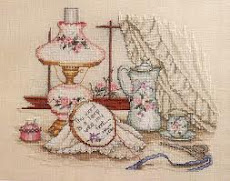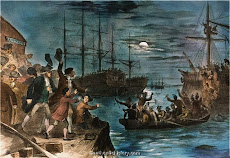Thursday, December 24, 2009
Roman Britain, 55 BC- AD 410
Rome contributed so much more to Britannia than just a wall! South of the wall, in the civil-government district, the Romans built roads that helped boost trade and defense (see, Eisenhower read his history); they also brought their gift for law and government organization. Without a doubt, however, Rome's greatest gift was the Gospel of Jesus Christ. Caesar's foray into Britannia started the relationship between the Romans and the Celts across the channel. From that point on, Roman influences found their way to the people of the British Isles. As Christianity made Its way across the Empire along the Roman roads into the Roman hearts, It also crossed the channel into Britannia. In the early 5th century, the Romans are recalled to defend the empire on the continent. Sadly, their departure will leave Britannia open to invasions by the Saxons and others, who bring their paganism with them. Christianity, however, will prevail, and these pagans will themselves be transformed by the truth of a gentle Savior.
In our lives, we may feel that God's plans encounter setbacks. Maybe so or maybe not. Perhaps "setbacks" are simply God's way of expanding His Kingdom as in the days of Roman Britain. This year, be encouraged as God works in the lives of His saints.
Posted by At Home Together at 6:03 AM 0 comments
Sunday, December 20, 2009
Plutrach, Petrarch and the Monarch
I'm excited about teaching the History of Tudor-Stuart England this spring term. This course is also a continuation of the Renaissance, this time with the emphasis on the Northern Renaissance. We will examine how Petrarch's humanism changed a bit under the influence of the joyless Erasmus.
At the center of our course sits the great Henry VIII. Like this famous painting, Henry VIII was a larger-than-life figure who took the age in which he lived completely captive with his persona and his controversies.
We'll approach this course the way we have in the other courses in this series: in the spirit of Plutarch, the students will have to write 15 biographies of individuals from the era. We will broaden the era to include Henry V, Agincourt and the French side of the post- "100 Year War" era. Then we'll move quickly back to the English side of the Channel. I'll add a post in the next couple of days about the texts we're using.
At the center of our course sits the great Henry VIII. Like this famous painting, Henry VIII was a larger-than-life figure who took the age in which he lived completely captive with his persona and his controversies.
We'll approach this course the way we have in the other courses in this series: in the spirit of Plutarch, the students will have to write 15 biographies of individuals from the era. We will broaden the era to include Henry V, Agincourt and the French side of the post- "100 Year War" era. Then we'll move quickly back to the English side of the Channel. I'll add a post in the next couple of days about the texts we're using.
Posted by At Home Together at 8:38 PM 3 comments
Monday, December 14, 2009
Hoping They'll Learn to Love Learning
This is of course, a very stressful time for our students as they struggle to complete their papers and research assignments and study for final exams. Through all of these travails, I hope that they can somehow learn to truly love learning-- to see college not as a means of avoiding the "real world" for four+ years, but as a source of great joy in their lives. The Renaissance humanist, Francesco Petrarch, loved learning. In fact, he left this good earth while studying at his desk. He thought the best life was one wherein an individual could worship God and use the fine mind He had given. But I know that if I suggested this to some of my students this week, they would certainly throw something at me.
Posted by At Home Together at 1:30 PM 1 comments
Monday, December 7, 2009
Pearl Harbor
Today marks the 68th Anniversary of the infamous attack on Pearl Harbor. FDR correctly prophesied that this date would "live in infamy." That generation could no doubt tell us the exact circumstances in which they heard the news just as my parents could tell you what they were doing when President Kennedy died and I can tell you where I was when the horror of 9/11 began to unfold.
These tragic "bookmarks" of our past serve as reminders not only of these terrible events, but also remind us that America has withstood the evil attacks meant to bring her to her knees. Ironically, the best of America's character emerged in response to these events.
Our worst enemies have never been from without--they are inside our own borders--those who tirelessly work to tear down the moral fiber of our nation. No prayer in school, abortion on demand, partial-birth abortion, stem cell research using cells from embyros--these are the enemies, cloaked in claims of Lockean civil rights, that will bring an end to our culture and our country.
Posted by At Home Together at 6:21 AM 1 comments
Wednesday, December 2, 2009
Everyone's Wild About Harry . . .
 I have really enjoyed teaching the President's class this semester. At 47, I have seen that what was familiar to me in terms of political personalities is ancient history to many of my students. Actually, this generation gap has some advantages. I had a great time yesterday talking about Harry Truman and watching the students fall in love with this great leader just as I did as a student many years ago. Republicans and Democrats alike admire Truman for his courage, integrity and candor (lots of candor!). My point to the students was that few presidents have had to face what he did--so many crises in every direction, at home and abroad. He concluded World War II, admirably, defined and pursued a wise foreign policy, and dealt with labor and civil unrest here at home, all the while dealing with a cantankerous Congress. But here is something to think about: Truman is much beloved today on either side of the party line, but my understanding of politics in the 1950's is that by the time Truman left office, both parties wanted him gone. How the passage of time has corrected their vision.
I have really enjoyed teaching the President's class this semester. At 47, I have seen that what was familiar to me in terms of political personalities is ancient history to many of my students. Actually, this generation gap has some advantages. I had a great time yesterday talking about Harry Truman and watching the students fall in love with this great leader just as I did as a student many years ago. Republicans and Democrats alike admire Truman for his courage, integrity and candor (lots of candor!). My point to the students was that few presidents have had to face what he did--so many crises in every direction, at home and abroad. He concluded World War II, admirably, defined and pursued a wise foreign policy, and dealt with labor and civil unrest here at home, all the while dealing with a cantankerous Congress. But here is something to think about: Truman is much beloved today on either side of the party line, but my understanding of politics in the 1950's is that by the time Truman left office, both parties wanted him gone. How the passage of time has corrected their vision. Posted by At Home Together at 6:08 AM 2 comments
Henry V
I am very excited about the next course in our history sequence--the History of Tudor-Stuart England. We will back up a bit and speak of the last great Medieval King, Henry V. Shakespeare made this larger-than-life monarch even grander in his play, Henry V. Kenneth Branagh's 1989 film adaptation of Shakespeare's work is one of my all-time favorite movies. I think we will begin by setting aside an evening to watch the movie as a class.
Posted by At Home Together at 5:43 AM 0 comments
Subscribe to:
Posts (Atom)











